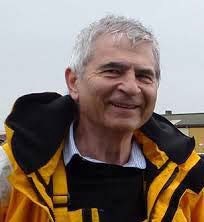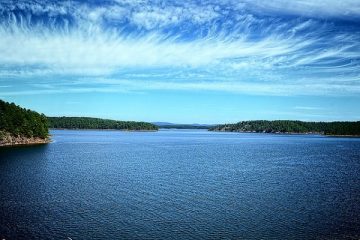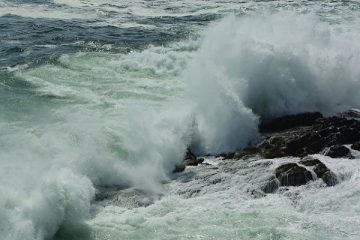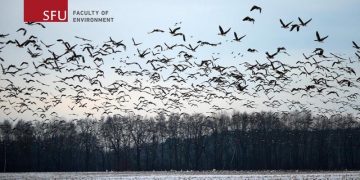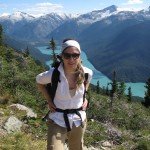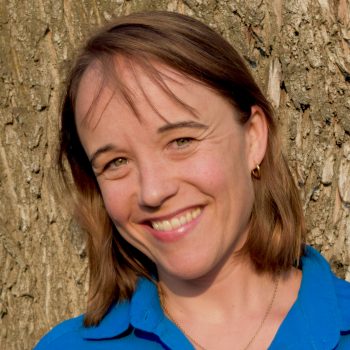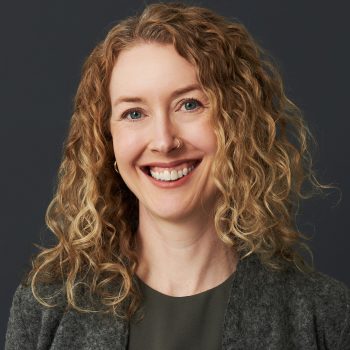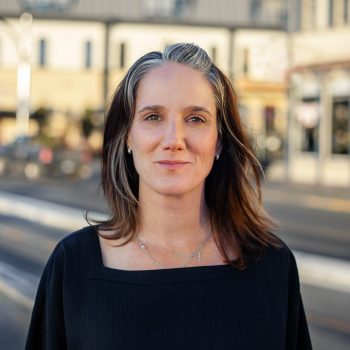IRES Student Symposium
Time: 1:15pm to 4:30pm
Location: AERL Theatre (room 120), 2202 Main Mall, UBC
The IRES Student Symposium is an annual event that happens every April. It showcases the research done by our Resources, Environment and Sustainability (RES) graduate students.
Speaker Schedule:
1:15pm to 1:45pm – Emma Luker (MSc), Supervisors: Leila Harris and Mark Johnson
1:45pm to 2:15pm – Santiago de la Puente Jeri (MSc), Supervisor: Villy Christensen
2:15pm to 2:45pm – Tugce Conger (PhD), Supervisor: Stephanie Chang
Coffee break 2:45pm to 3pm
3pm to 3:30pm – Xuesi Shen (MSc), Supervisor: Hadi Dowlatabadi
3:30pm to 4pm – Myriam Khalfallah (PhD), Supervisor: Daniel Pauly
4pm to 4:30pm – Maggie Low (PhD), Supervisor: Terre Satterfield
Speaker Bios:
Emma Luker, MSc Student
Bio: Emma is a Master of Science (MSc) student in Resource Management and Environmental Studies working with Drs. Leila Harris and Mark Johnson. Emma graduated with a Bachelor of Arts and Science (BA&Sc Hons.) in Environmental Studies from McGill University in 2014. Between her undergraduate and graduate degrees Emma worked in several different professional settings, such as a peace and conflict NGO in Colorado, U.S.A, and a renewable energy consulting company in Yokohama, Japan. She has been awarded an NSERC grant and an International WaTERS Fellowship for her graduate research, which focuses on groundwater governance in Cape Town, South Africa. Emma is currently a member of the EDGES research collaborative, the Program on Water Governance and the UBC Ecohydro Lab.
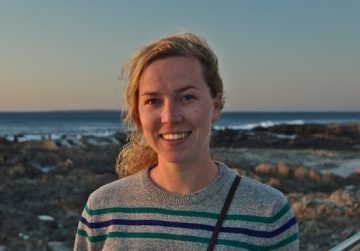
Talk title: Groundwater governance in the face of drought: the case of Cape Town, South Africa
Abstract: Water managers in Cape Town indicate that the record low rainfall of 2015 has caused the worst drought they have seen in 30 years. This recent drought is expediting the need for additional water management mechanisms, one of which is water supply diversification. However, given the historical focus on surface water infrastructure, there are significant obstacles in integrating new sources, like groundwater, into the supply chain. This talk will be aimed at presenting an analysis of the barriers and opportunities for groundwater governance in Cape Town from a long-term planning perspective. Insights will analyze the groundwater perceptions of water managers, in relation to the decisions being made about two new aquifer schemes, which are projected to soon be part of Cape Town’s water future.
Santiago de la Puente Jeri, MSc Student
Bio: I am a Peruvian researcher that has been studying the ecological and human dimensions of the Humboldt Current in Peru, with emphasis on its fisheries. My research interests include: (1) seafood value chains, (2) ecological modelling, (3) fisheries governance, (4) ecosystem-based fisheries management, and (5) economic valuation of ecosystem services. Before joining the RMES program, I worked as an Associate Researcher at the Centre for Environmental Sustainability of the Cayetano Heredia University (2010-2015), I was Advisor to the Vice-Minister of Fisheries in Peru (2012), and I worked as a Consultant for OCEANA, GEF-UNDP, FAO, among others (2012-2016).
Talk title: Reconstructing shark catch and consumption patterns in Peru
Abstract: Sharks are among the most endangered groups of marine organisms due to their life history characteristics and current levels of fishing. Quantifying domestic consumption of shark products has been identified as a serious data gap worldwide. In Peru, one of the major global suppliers of shark fins, sharks have received little attention from research, monitoring and regulatory bodies. Thus, catch and consumption patterns are poorly understood, though suspected to be high. This project seeks to reconstruct the Peruvian shark catch by species, following their landings along the seafood value chain to estimate local shark consumption patterns for the 2000-2015 period.
Tugce Conger, PhD Candidate
Bio: Tugce is a PhD Candidate, working with Prof. Stephanie Chang. She got her undergraduate degree in urban and regional planning in Turkey and did her masters degree at the University of Colorado Denver. Before starting her PhD studies at UBC, she worked as a researcher at Colorado Center for Community Development, in Denver Colorado and as an associate urban planner at Baseline Engineering in Golden, Colorado. Tugce’s PhD research focuses mainly on the use of natural assets to reduce coastal flooding risks, sea level rise adaptation, vulnerability assessments, resilience building, and stakeholder engagement.
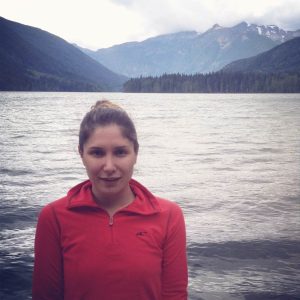
Talk Title: Creating typologies to investigate green infrastructure coastal protection benefits and vulnerability in the Salish Sea
Abstract: Situated at the interface between land and ocean, green infrastructure, natural assets at coasts, are increasingly favorable alternatives to traditional hard coastal protection structures. Green infrastructure provides important coastal protection benefits through reducing wave energy, attenuating floodwater, increasing elevation, reducing erosion and mitigating debris movement. However, influenced by post-industrial climate change and other human activities along the coasts, green infrastructure’s coastal protection role is highly threatened due to its vulnerability to changing environmental conditions. In this talk I will introduce an indicator-based methodology to identify green infrastructure typologies that could help find highest coastal protection benefits in the Salish Sea, while accounting for vulnerability.
Myriam Khalfallah, PhD Student
Bio: Myriam was born and grew up in Tunisia. In 2013, she graduated as an environmental and fisheries engineer from the National Agronomic Institute of Tunisia (INAT). Shortly after, Myriam joined the Sea Around Us to reconstruct fisheries catches for several Mediterranean and Arab countries. She is currently completing her PhD thesis under the supervision of professor Daniel Pauly.

Talk title: Fisheries in Southern Mediterranean and Arab Countries
Abstract: In spite of the societal and economic importance of marine fisheries in Southern Mediterranean and Arab Countries (SMACs), there is a considerable gap of knowledge concerning their state. Following what is collectively known as the “Arab Spring”, the SMACs have been subject to political, societal and economic turmoil. This did not spare fisheries. In the SMACs, fisheries catch databases often represent the only available and affordable information on fisheries. However, such data are incomplete, excluding non-commercial fisheries and discards. By applying the catch reconstruction approach, historical catches by reported, unreported, and illegal, commercial and non-commercial, large- and small- scale marine fisheries, for the time period 1950-2014, have been re-estimated for the SMACs. Main findings suggest an increase of unreported and illegal fishing activities and a high unreliability of official fisheries statistics. In the case of Libya, the fishing sector was directly affected by the social crisis that started in 2011, and largely transitioned into a smuggling industry.
Maggie Low, PhD Candidate
Bio: Maggie Low is a PhD Candidate at the Institute for Resource, Environment and Sustainability and a UBC Public Scholar. Maggie has a keen interest in Indigenous – state relations and environmental change in Western Canada. Her work focuses on the intersection of Indigenous governance and natural resource management in Canada, and specifically how First Nations governance is evolving in coastal British Columbia given recent court cases, the failures of the BC Treaty Process and this new “era of reconciliation.” Maggie completed a Bachelor of Science in Environmental Sciences at the University of Guelph and a Master of Arts in Environmental Studies at the University of Victoria. She currently lives in Vancouver, BC.
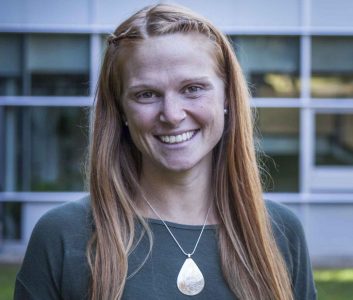
Talk Title: Indigenous Governance and the Reconciliation Protocol Agreement: Implications for Heiltsuk Nation
Abstract: In BC, the increasing recognition of Indigenous rights and title is forcing normally powerful stakeholders – resource users, environmental organizations, and all levels of government – to address the concerns of First Nations directly through political negotiating processes currently unfolding and through the implementation of new resource management regimes. Recently, these negotiations have produced Protocol agreements between First Nations governments and the BC government regarding decision-making authority and enhanced economic opportunities for several coastal First Nations. In this talk, Maggie will present some of her findings from investigating the governance implications of on such agreement known as the Reconciliation Protocol Agreement (RPA), signed between Heiltsuk Nation and the BC government in 2010.
______________________________________________________________________________________________________________________________________
Xuesi Shen, MSc Student
Bio: Xuesi Shen is a master student at Institute for Resources, Environment, and Sustainability, studying under the guidance of Dr. Hadi Dowlatabadi. Her research interests include resources management, energy and environmental policy, and sustainable development in developing countries. Her current research focuses on how to improve coastal communities’ resilience to potential marine transportation disruption. Before joining IRES, Xuesi earned a BEng in Engineering Physics and a BA in Economics from Tsinghua University in China.
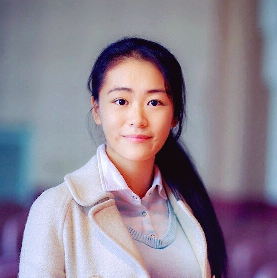
Talk Title: Resilience of the Coastal Communities in British Columbia: Fuel Management
Abstract: Coastal and island communities in British Columbia are highly dependent on maritime transportation system to support their basic needs. Traditionally, these communities have kept substantial local caches of their primary needs. However, with the drive towards more efficient logistics and Just-In-Time delivery, local caches have been eliminated with frequent maritime service. This trend leads to the shortage of critical supplies when there is a disruption in regular maritime service. Among all the critical supplies, fuel plays a key role in disaster relief. Services such as fire, police and medical are directly dependent on fuel availability. Our study focuses on how to manage the vulnerability of coastal communities to fuel shortages in the event of marine transport disruptions.
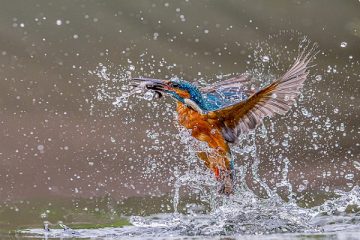
Photo credit: Andy Morffew from flickr/Creative Commons

